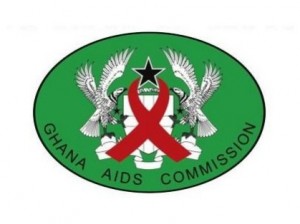More than 10,000 people in Ghana die of HIV-related conditions – Commission
 HIV is a major public health issue in Ghana and the leading cause of death. Every year the country records about 17,000 new infections of HIV and more than 10,000 people dying of HIV-related causes.
HIV is a major public health issue in Ghana and the leading cause of death. Every year the country records about 17,000 new infections of HIV and more than 10,000 people dying of HIV-related causes.
The Ghana AIDS Commission (GAC) is therefore calling for aggressive resource mobilisation and adequate investment to end HIV and AIDS by 2030.
Dr Kyeremeh Atuahene, the Director General of the GAC, said Ghana has the needed tools, strategy, policies, and capacities to end HIV and achieve epidemic control but it needed other resources.
He said currently, the Commission has only 33 per cent of the funds needed for HIV response leaving more than 66 per cent of the money in deficit, adding that without the resources to provide adequate services it would be difficult to achieve set targets.
Dr Atuahene made the call on the sidelines of a stakeholder validation meeting on the national workplace HIV and Wellness Policy as part of efforts to end AIDS and promote the overall well-being of Ghanaians.
Ghana has an objective to reach the 95-95-95 fast track targets by 2025 and ultimately the SDG 3 specific target 3.3 which calls for an end to the epidemic of AIDS by 2030.
The aim is to diagnose 95 per cent of all HIV-positive individuals, provide antiretroviral therapy (ART) for 95 per cent of those diagnosed, and achieve viral suppression for 95 per cent of those treated by 2030.
He said at the moment the country has achieved 72 per cent of the first 95 targets, adding that the gap was huge and with the current rate the country would not be able to achieve even 80 per cent, which was a serious constraint on the country.
This is the more reason to mobilize workplaces to ensure effective testing, diagnosis, and treatment to achieve viral suppression and the goal, Dr Atuahene stated.
HIV is a major public health issue in Ghana and the leading cause of death. Every year Ghana records about 17,000 new infections of HIV with more than 10,000 people dying of HIV-related causes.
The validation meeting provided stakeholders the opportunity to ensure that the content of the revised policy aligns with current evidence, and best practices, to enable it to remain relevant, adaptable, and responsive to the changing needs and challenges at the workplace.
The revised workplace HIV and Wellness Policy, when approved, would emphasize the need for education programmes, promote voluntary HIV Testing Services (HTS), and ensure access to quality healthcare services.
It also commits to eliminating stigma and discrimination within the workplace, thus creating an atmosphere where individuals can thrive professionally while embracing their health and well-being.
The validation process comes decades after the policy was in 2005 and first reviewed in 2012.
Dr Atuahene said Ghana’s efforts to end AIDS by 2030 could not be isolated from broader health concerns.
“The Workplace HIV and Wellness Policy, however, recognizes the interconnectedness of physical, mental, and emotional well-being.
By integrating wellness initiatives, such as promoting healthy lifestyles, mental health support, and other preventive measures, we aim to holistically address the diverse needs of our workforce”, he stated.
Mr Joshua Ansah, the Deputy Secretary General of the Trade Union Congress, commended the GAC for the review process.
He said this would create an enabling environment not just for individuals affected by HIV and AIDS but other related diseases including sexually transmitted diseases, TB, and even non-communicable diseases such as hypertension and diabetes as this was not in the previous policy.
Mr Ansah encouraged companies to establish clinics to be able to handle some of the conditions internally and urged workers to remain calm and be rest assured that their status would be well managed now more than ever.
He again advised employees to feel free and report their health conditions to their employers for needed support to have a healthy working environment.
Dr Akua Ofori-Asumadu, the Technical Officer of the International Labour Organisation (ILO), speaking on the mandate of the ILO said occupational safety was a fundamental human right of workers all around the world including Ghana.
She said the policy review was important as it would enhance HIV and AIDS education, allow for more testing, and reduce stigmatization to create a productive environment.
Source: GNA
